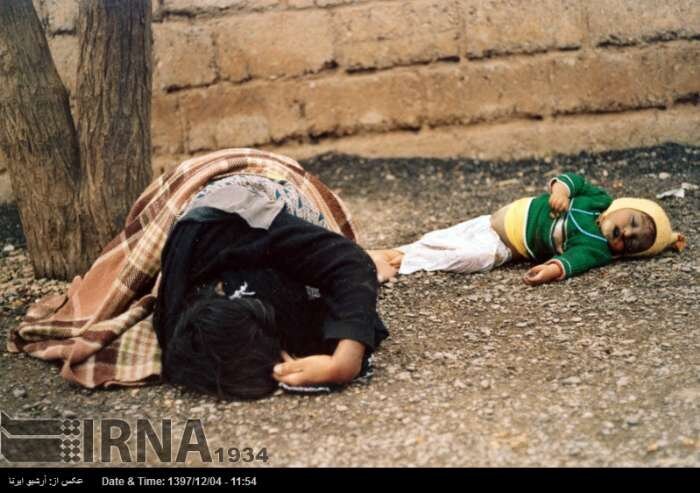Iran says will neither ‘forget nor forgive’ perpetrators of gas attack on Sardasht

TEHRAN – Foreign Minister Hossein Amir Abdollahian says Iran will “neither forget nor forgive” the perpetrators of the chemical attack on the border city of Sardasth in northwestern Iran in 1987.
“…I like to insist and clarify that the government of the Islamic Republic of Iran will neither forget nor forgive the perpetrators of this crime,” Amir Abdollahian said in a message on Wednesday as Iran is marking the 36th anniversary of the tragedy.
Iraqi warplanes dropped chemical weapons on the city of Sardasht and surrounding villages on June 28, 1987. Over 100 people were killed and thousands more were exposed to chemical agents in the bombardments.
The material for producing chemical weapons were provided to the Saddam Hussein regime by companies from the Netherlands, Germany and some other companies from Western countries.
For instance, two Dutch companies, Melchemie (now Otjiaha) and Forafina Beleggingen (formerly KBS Holland), provided Iraq with chemicals between 1982 and 1984.
“There is valid evidence and undeniable documents about the practical and extensive complicity of some Western countries, especially Germany, Britain, France, the Netherlands and the United States, in committing these crimes by equipping the Saddam regime with chemical weapons and helping it use them against the Iranian people,” Amir Abdollahian said in his message, according to Press TV.
“For example,” Amir Abdollahian said, “The facilities for production of chemical weapons in Samarra and Fallujah were built with the participation of the defense ministry of Germany.”
Such weapons were produced from the materials sent from the United States and were dropped on the Iranian citizens by the French fighter jets, the foreign minister stated.
After three decades, many of the survivors of the chemical attack still have to live with the long-term respiratory and even psychological effects of inhaling mustard gas used in the attack.
Amir Abdollahian said Western countries that claim defense for human rights, have openly hampered Iran’s legal measures over the last 36 years to secure the rights of the martyrs and survivors of the attack or punish the perpetrators and their accomplices.
Calling the Western-backed atrocities against Iran a clear violation of international law and the United Nations Charter, the foreign minister emphasized that all the perpetrators must be held accountable for their inhumane acts.
The top Iranian diplomat went on to say that the obstacles created in the way of securing the rights of the chemical victims will neither negate the international responsibility of the relevant states nor will it disrupt Iran’s determination to follow its rights.
He added one of the less seen aspects of the chemical weapons attacks against Iran had been its “widespread use against cities and civilians, especially defenseless women and innocent children.”
The foreign minister further said the Western sanctions on Iran, which have prevented the import of medicine and medical equipment needed by such victims, are a blatant example of “the most inhumane crimes against humanity.”
The chief diplomat added, “As the biggest victim of the widespread and systematic use of chemical weapons at the modern period, the Islamic Republic of Iran condemns the use of chemical weapons anywhere by anyone and under any circumstances and once again renews its commitment to the realization of a world free of chemical weapons.”
